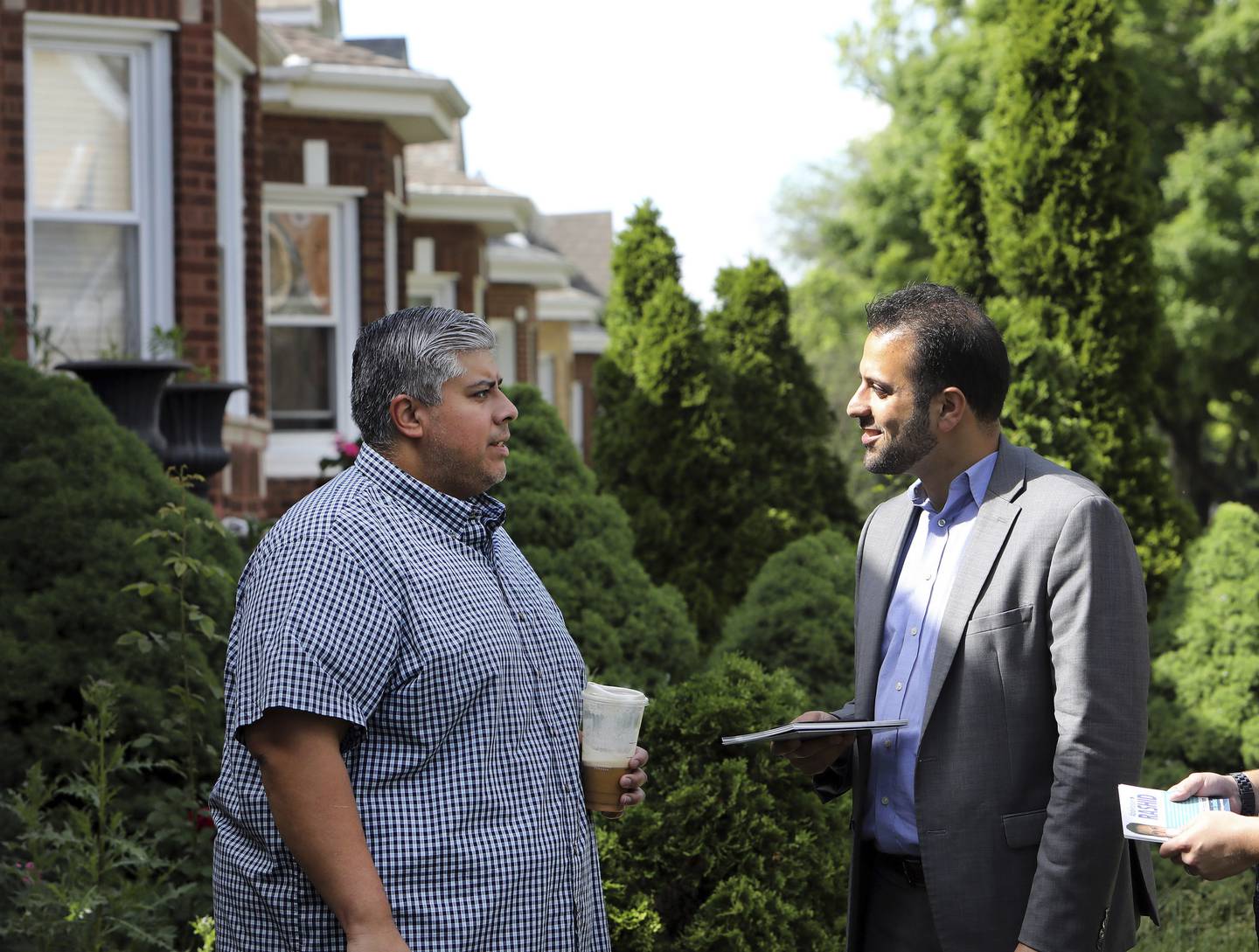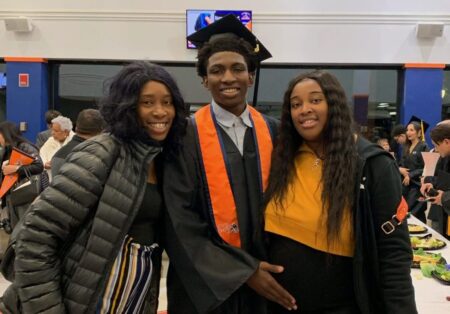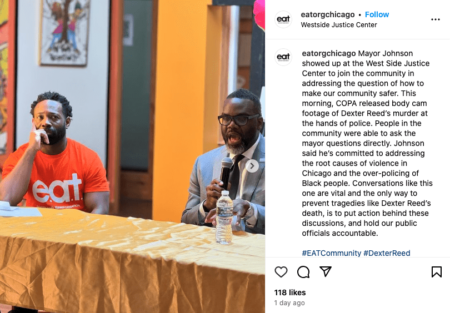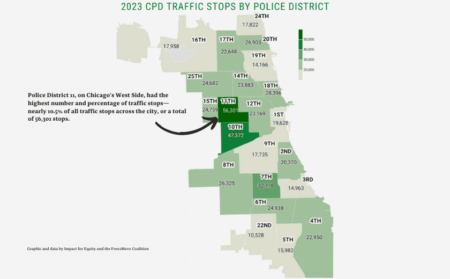With the longest-serving state House speaker in American history not on the ballot for the first time in over half a century, new Speaker Emanuel “Chris” Welch entered primary night wanting to set the stage for a November ballot that will keep the Democrats’ sizable House majority bequeathed to him by his now-indicted predecessor.
Democrats in the House and Senate, which is led by President Don Harmon of Oak Park, are in the driver’s seat for the November general election. They used their hefty majorities in both chambers to draw favorable new legislative district boundaries following the once-a-decade national census, and Democratic Gov. J.B. Pritzker quickly agreed to sign the map specifically designed to keep their party in control.
Advertisement
Welch, a Hillside Democrat, took over as speaker in January 2021 when then-House Speaker Michael Madigan, who holds the nationwide record for 36 years as speaker, failed to extend his reign once a bloc of 19 mostly female House Democrats refused to back him. Already energized by a #MeToo movement that led to Madigan cutting misbehaving aides, many lawmakers saw the growing bribes-for-favors ComEd scandal as a last-straw moment when federal prosecutors in mid-2020 named Madigan “Public Official A.”
Republicans used Madigan’s political baggage and his early implication in the ComEd scandal during the 2020 general election to help sink a Democratic state Supreme Court justice seeking his third 10-year term and to weigh down Pritzker’s proposed amendment that sought higher income taxes on the Illinoisans with the biggest paychecks. Madigan, who resigned from the House after losing the speakership, was indicted on corruption charges in March. He has pleaded not guilty.
Advertisement
Yet Madigan’s presence lingered over this rare June primary. Republicans amped up their anti-Madigan rhetoric in hopes that Democrats tied even tangentially to the ex-speaker would suffer politically from any association with him.
Going into Tuesday, Republicans sought to meld together a lineup of candidates that could pick up seats in November’s general election and build momentum on voter outrage fueled by higher gas prices, rising inflation, Democratic President Joe Biden’s lukewarm favorability ratings and the fallout from Madigan’s legal woes. The U.S. Supreme Court’s decision to throw out Roe v. Wade, though, is likely to cause both parties to recalculate their politics.
Democrats currently hold a 73-45 majority in the House, a margin that Madigan, a master of the closed-door remapping process, had helped build while still in power. Harmon’s Democratic troops hold an overwhelming 41-18 majority.
Winning back a majority of seats in either chamber is not a likely outcome for Republicans this fall without major political upheaval. Democrats now have significantly more lawmakers in both houses, and they went all out to carve the new legislative boundaries with an eye toward keeping or enhancing their majorities.
At the very least, Republicans, particularly House GOP Leader Jim Durkin of Western Springs, hope to pick up enough votes to take away what’s known as the Democratic supermajorities. Democrats currently hold more than enough lawmakers in both chambers to control a supermajority, three-fifths vote that could, if they stick together, override a governor’s veto or approve major debt with support from their party alone.
To break the supermajorities, Republicans would need to win at least three seats in the House in November, a potentially doable gain, and Senate Republicans led by Minority Leader Dan McConchie of Hawthorn Woods would need to pick up six seats, a much steeper climb, during the general election.
The marquee intramural scuffle among House Democratic candidates pits Rep. Mike Zalewski of Riverside against challenger Abdelnasser Rashid of Justice, a technology consultant for the Amalgamated Transit Union who attacked the incumbent over his strong legislative alliance with Madigan.
Zalewski’s father, retired Ald. Mike Zalewski of the 23rd Ward, is a key figure in the federal case against Madigan, who allegedly secured various contracts with ComEd for the former alderman and other political pals. The elder Zalewski allegedly received a $5,000-a-month contract that required little or no work. Rep. Zalewski, who has not been charged in the federal case, is married to Carrie Zalewski, the Illinois Commerce Commission chair. She has recused herself in matters dealing with the ComEd scandal.
Advertisement

Rep. Kathy Willis, the Addison Democrat that Madigan recruited years ago to take the seat away from Republicans, finds herself facing a challenge from Norma Hernandez, a Triton College trustee from Melrose Park. Madigan made Willis part of his leadership team, appointing her as his caucus chair, but she was one of the 19 holdouts who refused to support his reelection as speaker in 2021.
In the Democratic primary to replace retiring House Majority Leader Greg Harris, a five-way North Side race includes Fernando Mojica, Eileen Dordek, Hoan Huynh, Joseph Struck and Andrew Peters. Dordek drew support from Pritzker, who knocked on doors with her to drum up support.
In a Democratic race on Chicago’s North Side and nearby suburbs, Rep. Denyse Wang Stoneback is facing a one-on-one rematch against fellow Skokie resident Kevin Olickal, who placed third in a three-way primary two years ago.
In the South suburbs, Democratic Rep. Thaddeus Jones, who doubles as mayor of Calumet City, is backed in his reelection bid with an infusion of cash from Welch-controlled campaign funds. But Jones faces a challenge from Ald. Monet Wilson, who last year became the first Black woman elected to Calumet City’s City Council.
Borrowing from the Madigan playbook, Welch’s team is backing the incumbent.
Appointed Democratic incumbent Rep. Michael Kelly, who replaced longtime Rep. John D’Amico of Chicago, is fighting to hold on to the seat sought by opponent and fellow Chicagoan Michael Patrick Rabbitt.
Advertisement
In the Senate, Northwest Side incumbent Democrat Robert Martwick is up against conservative opponent Erin Jones, a Chicago firefighter.
Further north, the retirement of Democratic Sen. Melinda Bush has left an open seat in which incumbent Rep. Sam Yingling of Grayslake, who spoke publicly against Pritzker’s proposed income tax hike on high-salaried Illinoisans, is running against one-term former Rep. Mary Edly-Allen of Libertyville.
Yingling was among the 19 House lawmakers who refused to support Madigan’s bid to be reelected speaker. Pritzker backs Edly-Allen.
House Republicans also are watching for the results of a race in which a member of Durkin’s leadership team is facing competition: Incumbent Rep. David Welter of Morris is being challenged by Jed Davis of Newark. Davis’ campaign is supported largely through a political fund run by allies of Sen. Darren Bailey of Xenia, a Republican candidate for governor. Welter’s reelection campaign is supported by Republican Party leaders and labor unions, among others.
Advertisement







